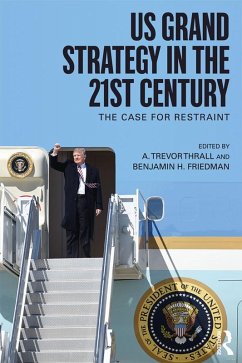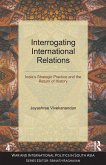This book challenges the dominant strategic culture and makes the case for restraint in US grand strategy in the 21st century.
Grand strategy, meaning a state's theory about how it can achieve national security for itself, is elusive. That is particularly true in the United States, where the division of federal power and the lack of direct security threats limit consensus about how to manage danger. This book seeks to spur more vigorous debate on US grand strategy. To do so, the first half of the volume assembles the most recent academic critiques of primacy, the dominant strategic perspective in the United States today. The contributors challenge the notion that US national security requires a massive military, huge defense spending, and frequent military intervention around the world. The second half of the volume makes the positive case for a more restrained foreign policy by excavating the historical roots of restraint in the United States and illustrating how restraint might work in practice in the Middle East and elsewhere. The volume concludes with assessments of the political viability of foreign policy restraint in the United States today.
This book will be of much interest to students of US foreign policy, grand strategy, national security, and International Relations in general.
Grand strategy, meaning a state's theory about how it can achieve national security for itself, is elusive. That is particularly true in the United States, where the division of federal power and the lack of direct security threats limit consensus about how to manage danger. This book seeks to spur more vigorous debate on US grand strategy. To do so, the first half of the volume assembles the most recent academic critiques of primacy, the dominant strategic perspective in the United States today. The contributors challenge the notion that US national security requires a massive military, huge defense spending, and frequent military intervention around the world. The second half of the volume makes the positive case for a more restrained foreign policy by excavating the historical roots of restraint in the United States and illustrating how restraint might work in practice in the Middle East and elsewhere. The volume concludes with assessments of the political viability of foreign policy restraint in the United States today.
This book will be of much interest to students of US foreign policy, grand strategy, national security, and International Relations in general.
Dieser Download kann aus rechtlichen Gründen nur mit Rechnungsadresse in A, B, BG, CY, CZ, D, DK, EW, E, FIN, F, GR, HR, H, IRL, I, LT, L, LR, M, NL, PL, P, R, S, SLO, SK ausgeliefert werden.









